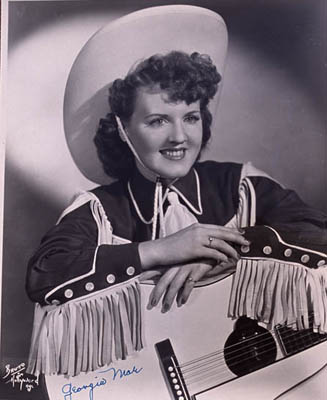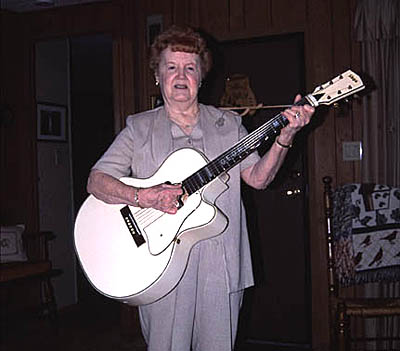We are pleased to post a guest blog by Cliff Murphy, folklorist at the Maryland State Arts Council and co-director of Maryland Traditions. While a graduate student at Brown University, Cliff interned with us. In 2008 he received a Ph.D. in Ethnomusicology from Brown University, where he wrote a history and ethnography of New England Country & Western music.
.
On any given weekend night, head out to the Canadian-American Club in Watertown, Massachusetts and you’ll find the unmistakable sound of New England Country & Western music. Honky-tonk steel guitar blends with Acadian twang and the occasional song that alternates verses sung in French and English. The house band – the Country Masters – and the lead vocal of singer Jimmy Spellman will remind you of Nova Scotian country star Hank Snow – or, better yet, Maine’s legendary truck-driving songster Dick Curless. And the community that gathers here – a community predominating in immigrants from maritime Canada or their descendants – never questions the authenticity of its country musicians.
Yet in the popular imagination, Country & Western music is firmly rooted in the American south, an expression of Protestant, white, working-class Southerners. A scan of modern Country radio reveals song after song with a deep southern twang in the vocals – even when it comes from Massachusetts natives like Jo Dee Messina of Holliston.
So what do we make of the fact that Country & Western has been a rich and vibrant form of multicultural working-class expression going all the way back into the 1920s? And, perhaps even more puzzling is how we come to grips with the fact that Massachusetts has been a hotbed of cowboy yodeling for just as long – a place where women like Georgia Mae Harp of Carver, Kenny Roberts of Athol, Vinny Calderone of Everett, and Johnnie White (Jean LeBlanc) of Stoneham have been yodeling their troubles away for the better part of a century?

As a graduate student in ethnomusicology at Brown University in 2003, I had the good fortune of landing an internship with Maggie Holtzberg – folklorist extraordinaire and editor of this blog – who encouraged me to find the answers to these questions, and even accompanied me on fieldwork visits with a few of the abovementioned yodelers. What emerged over the next four years of fieldwork throughout New England was a picture of Country & Western music as a deeply expressive form of multicultural working-class culture.
The highly ornamented, virtuosic yodel of cowboy music (as opposed to the “blue yodel” of Mississippi Brakeman Jimmie Rodgers) can be traced directly to the farms and lumber camps of Maritime Canada and Maine. An intensely personal form of expression, men generally developed their yodel while working alone with animals – driving teams of oxen in the Maine woods, or driving apples to market in Nova Scotia’s Annapolis Valley. Continue reading “New England Country & Western Music”
